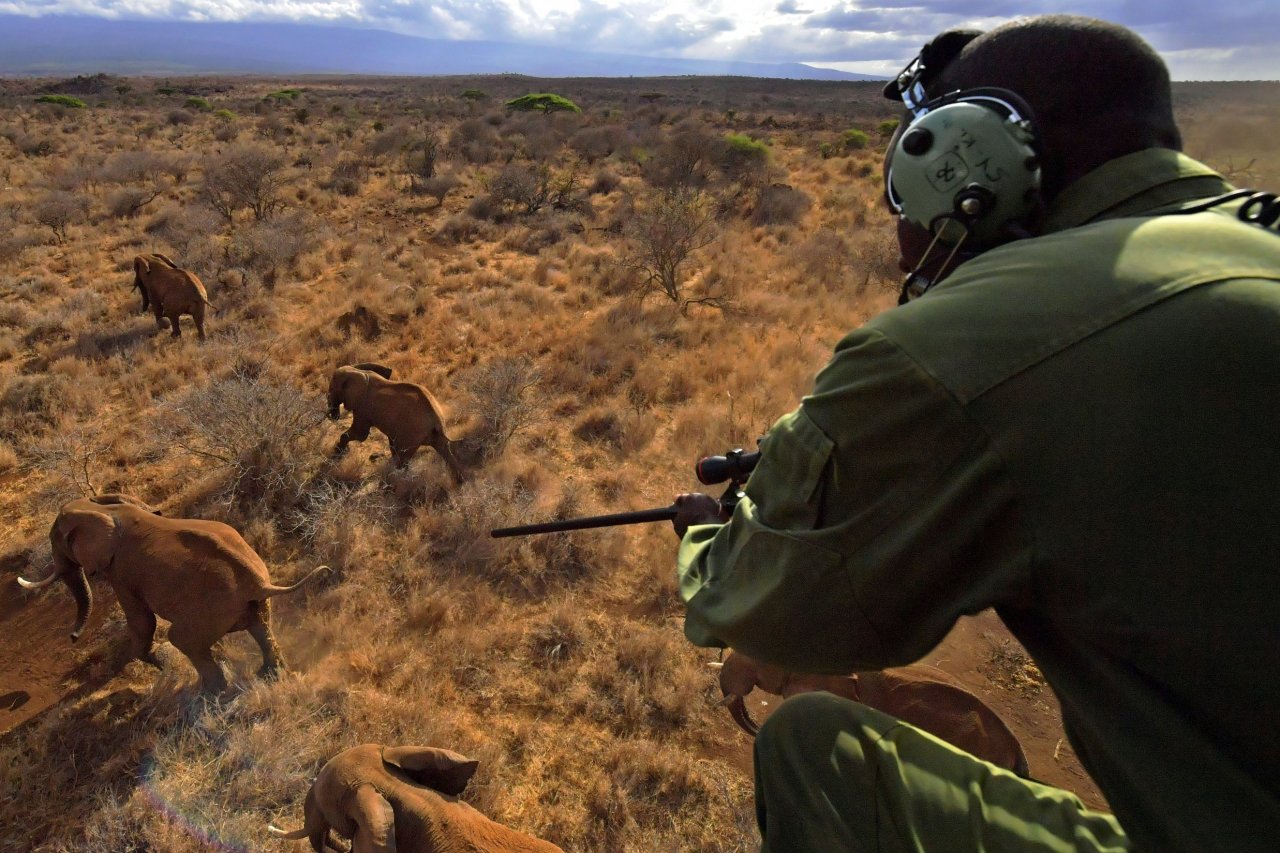Elephants in East Africa are adapting their behavior to survive the greatest threat to their existence: poachers.
A study published in the peer-reviewed Ecological Indicators journal this week suggests that elephants are aware of the danger of poaching gangs and have begun moving at night to avoid them.
The research, carried out by the Kenya-based charity Save the Elephants and the University of Twente in partnership with the Kenya Wildlife Service, used GPS tracking and mortality data collected in northern Kenya between 2002 and 2012.
The data helped calculate a "night-day speed ratio" of the movements of elephants in relation to levels of poaching in the nearby areas. It found that both male and female elephants moved more at night than during the day, when poachers are more active.
Elephants are able to see just as well in dim light as they can during daylight, but these changes to their behavior could also present other threats. Moving around at night in particular exposes baby elephants to the danger of losing their mothers, or being attacked by lions and other predators who hunt in the dark.
These findings confirm and expand on previous research on elephant behavior, such as a study published in March finding that African elephants in the wild sleep much less than elephants in captivity, spending the rest of their time fleeing poachers.
"This study shows the adaptability of Earth's largest land mammal to adapt their behavior flexibly in order to stay safe," said Save the Elephants founder Iain Douglas-Hamilton. "This alteration in movement behavior by elephants has implications for their foraging strategy, reproduction and survival, which are not yet fully understood."
Researchers believe the results could be monitored to help indicate changes in poaching levels on a near real-time basis, which could become an effective tool in saving the lives of elephants.
According to Ian Redmond, a consultant who focuses on elephants for the British animal rights organization Born Free Foundation, the research's most exciting finding is the application of GPS tracking to prevent poaching. He called it "a stroke of genius."
Redmond tells Newsweek the change in animal behavior wasn't as surprising, because we already know elephants are extremely intelligent creatures. "We know elephants have a brain four times the size of humans', they have a huge complex society with hundreds of relationships," he said.
He added, however, "[The GPS technique] can be a very useful tool for wildlife management, an exciting new application for modern technology. It's fascinating research and a stroke of genius," he said.
Acting like an additional range of eyes on the ground, monitoring the night-day speed ratio could alert antipoaching patrols in time to prevent elephants from being killed. "It truly has potential to save elephants' lives," Redmond said.


















